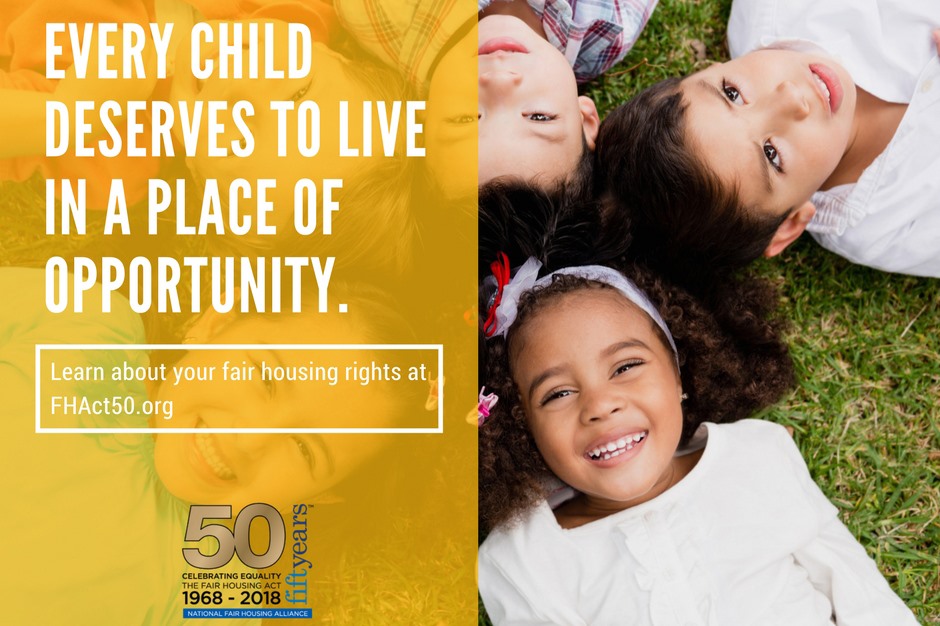Fair Housing Work Is Not Done
Discrimination in housing still an issue in metro Milwaukee.
Fifty years ago last week, the federal Fair Housing Act was signed into law. It represented a giant stride forward in our nation’s protection of basic civil rights, and it was paid for by the blood and sweat of tireless men and women who worked long and hard for it.
These activists are rightfully heralded as heroes and heroines today, but let’s also remember that they were ordinary human beings — human beings like you and me, who understood that if they didn’t stand up for our national ideals of equality and freedom, nothing would change. Can you and I say the same about our own work? Are we living up to the legacy of those who have gone before us, or does inaction mean that we support the status quo, which is still rife with injustice? As we look at American communities today, another question prods us, as well: how much has really changed?
Further, while some unlawful housing discrimination still happens in an overt fashion, much of it has become extremely subtle and difficult for home seekers to detect. Today, housing discrimination happens in ways that are deeply systemic, and embedded within large institutions — for example, in credit scoring systems, and the ways financial institutions maintain and market foreclosed homes in predominately minority communities compared to their practices in mostly white areas.
Some see our level of progress as acceptable, and observe the decrease in overt discrimination with some satisfaction.
But can we say it’s acceptable when:
- In 2017, a Latino family in Milwaukee is given a termination of tenancy and told by their landlord, “Now you can go back to Mexico where you belong”?
- In 2018 a Muslim family in Milwaukee encounters daily harassment from their neighbors because of their faith?
- An African-American family recently looking for housing in Wauwatosa was continually steered to housing in the City of Milwaukee, despite having the credit and financial means to afford housing in that suburban community?
- A Wisconsin family with children had their housing choices limited by being excluded from the opportunity to rent apartments above the first floor of a large complex?
- Housing discrimination complaints based on disability are the most common type of complaint filed with the Fair Housing Council and other enforcement agencies.
- Residential segregation continues to force many people of color in Wisconsin to reside in under-resourced neighborhoods, distant from educational and employment opportunities?
Back to my earlier question: Are we making positive change, or does inaction mean that we support the status quo, which is still rife with injustice? At the Fair Housing Council, we fight hard, every single day, against the status quo. But we can’t do it alone. The scope of housing discrimination is so vast that each and every one of us who purports to care about equality must become involved in this work.
Each one of us has the opportunity and ability to influence the direction the pendulum of equality swings. There are hundreds of ways to do this, of course. I offer you seven:
- Educate yourself on historical and present-day fair housing issues in your community. Know how integrated or segregated your neighborhood is, and what forms of discrimination exist in your community.
- Assess candidates for elected office based on their civil rights track record and their plans for creating inclusive communities.
- Ask elected officials about how their actions affect housing choice for all, and whether their policies either promote or dismantle segregated living patterns.
- Be willing to talk about uncomfortable issues — racial discrimination, racial disparities and white privilege, for example — with the people in your life. Naming housing discrimination and residential segregation are first steps in addressing them.
- Support your local Fair Housing Council and other civil rights organizations. Get on their mailing lists, so you’re kept apprised of fair housing news and emerging issues.
- Know your own fair housing rights. Understand what forms of discrimination are violations of the law.
- When you observe discrimination, speak up! Seek assistance from the Fair Housing Council or another appropriate organization, or tell your friends what their rights are. If you’re a member of the housing industry, make sure your colleagues understand that providing equal opportunity housing is not just the law, it’s good business.
Together, I know our cumulative efforts can become a groundswell — we can make meaningful, long-term change. But it requires that each of us takes responsibility and then takes deliberate action. We can do this. The health of our communities and the creation of a more just, equitable world depend upon it.
William R. Tisdale, president and CEO of the Metropolitan Milwaukee Fair Housing Council, writes that the goals of the Fair Housing Act — to promote integration and end unlawful discrimination in housing —have not been achieved, 50 years after the act was signed into law.
This story was originally published by Milwaukee Neighborhood News Service, where you can find other stories reporting on eighteen city neighborhoods in Milwaukee.






















